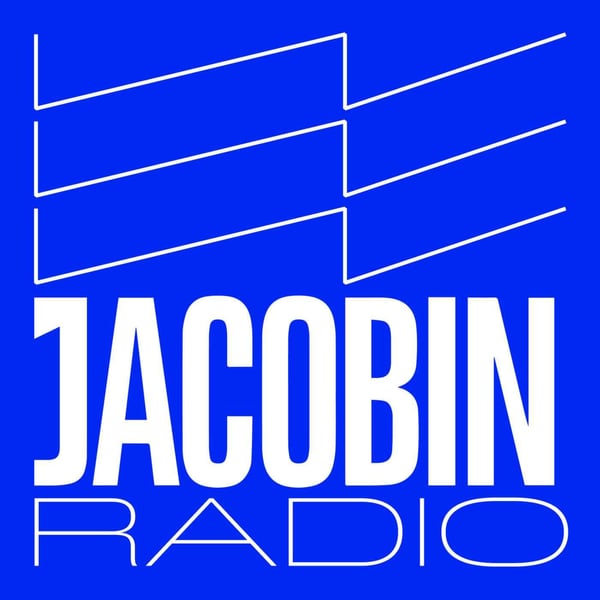Long Reads: Antoni Kapcia on Revolutionary Cuba and the Legacy of the Castros
Jacobin Radio
Jacobin
4.7 • 1.5K Ratings
🗓️ 14 August 2021
⏱️ 78 minutes
🧾️ Download transcript
Summary
The historian Antoni Kapcia joins Long Reads for a conversation about Cuban politics since the revolution of 1959. Antoni is the author of several books on Cuban history, including A Short History of Revolutionary Cuba and Leadership in the Cuban Revolution. Long Reads is a Jacobin podcast looking in-depth at political topics and thinkers, both contemporary and historical, with the magazine’s longform writers. Hosted by Features Editor Daniel Finn.
Read Antoni's article for Jacobin about the legacy of Raúl Castro here: https://www.jacobinmag.com/2021/04/raul-castro-fidel-che-guevara-cuba-history
Produced by Conor Gillies, music by Knxwledge.
Hosted on Acast. See acast.com/privacy for more information.
Transcript
Click on a timestamp to play from that location
| 0:00.0 | Hello, you're very welcome to Longreads, a Jacobin podcast where we look in depth at political topics and thinkers. |
| 0:07.0 | My name is Daniel Finn, and the future's editor here at Jacobin, and I'll be presenting the show. |
| 0:13.0 | The Cuban political system has now outlasted the Soviet Union by 30 years, defying predictions of collapse in the 1990s. |
| 0:20.0 | But the long-anticipated retirement of Role Castro means that the revolutionary generation no longer holds sway in Ivana. |
| 0:27.0 | Recent protests have once again raised questions about the political future of Cuba in a world that remains largely inhospitable. |
| 0:34.0 | Our guest today for a conversation about Cuban politics since the Revolution of 1959 is historian Antoni Kaptja. |
| 0:40.0 | He's the author of several books on Cuban history, including a short history of revolutionary Cuba, and leadership in the Cuban Revolution. |
| 0:49.0 | What was the political character of the 26th July movement during the struggle against Batista, and what particular roles did Fidel Castro and Role Castro play in its leadership? |
| 1:00.0 | The interesting thing about the character of the movement itself is that it changed quite significantly over the three years of its formal existence in the five years that it in certain movement of any sort had developed. |
| 1:15.0 | It became more radical. If you compare it in 1953, 54-55, when it was set up to what emerged in the late 1958, it had changed a lot. |
| 1:26.0 | But essentially, the aim was still always to remove Batista, but then, and that's the crucial distinction from other groups to achieve the long overdue process of nation-building, |
| 1:41.0 | which most Cubans recognized had been promised in 1902 when Cuba got independence, but which had never arrived mostly because of the close relationship with the United States. |
| 1:53.0 | And there was a degree of consensus within the movement that what that meant, that long awaited overhaul of the system, what it meant was a radical overhaul via some form of socialism, |
| 2:08.0 | because what it emphasized, what the programs always emphasized, was inequality, vast inequality of Cuba before legion, 58, dependence on the USA, although interestingly that didn't appear in the first manifesto at all. |
| 2:24.0 | Corruption was another issue that was quite dominant in politics, and just generally underdevelopment and backwardness. |
| 2:33.0 | And mostly that was achieved to be achieved by some form of socialism, although not all agreed with that. |
| 2:40.0 | So that was the distinction that eventually emerged within the movement. |
| 2:44.0 | So it was a very mixed, very amorphous movement, but by late 1958, it had a greater consensus than at the start, and it was much more radical than had originally been intended by many of the people that joined the movement. |
| 3:01.0 | As for the role of Fidel and Raun, Fidel's rob is crucial, you have to say that all the time, even though I spend much of my time academically in saying let's just please ignore Fidel because we are obsessed by him, |
| 3:16.0 | you cannot say anything other than he was crucial to this particular development, not least because he articulated the ideas and the plans of the movement better than anybody. |
| 3:30.0 | And certainly, publicly, he was very skilled at publicity right from the start. |
| 3:36.0 | He was politically astute, much more so than any other leader. |
... |
Please login to see the full transcript.
Disclaimer: The podcast and artwork embedded on this page are from Jacobin, and are the property of its owner and not affiliated with or endorsed by Tapesearch.
Generated transcripts are the property of Jacobin and are distributed freely under the Fair Use doctrine. Transcripts generated by Tapesearch are not guaranteed to be accurate.
Copyright © Tapesearch 2025.

